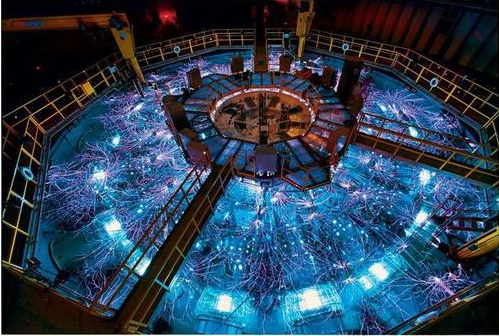
The signatories signed a declaration in Stockholm, with the objective of “jointly reaffirming their desire to strengthen European cooperation in the field of nuclear energy,” according to a statement issued on Tuesday (28 February).
“Nuclear energy is one of many tools to achieve our climate goals, to generate baseload electricity and to ensure security of supply,” reads the declaration, which was signed on the margins of a meeting of EU energy ministers organised by Sweden, the current holder of the EU’s six-month rotating presidency.
French Energy Transition Minister Agnès-Pannier Runacher, who initiated the meeting, said the objective of the alliance was “to structure cooperation on the whole nuclear value chain” and provide Europe “with all the tools to reach carbon neutrality by 2050”.
The eleven signatories include Bulgaria, Croatia, Czech Republic, Finland, France, Hungary, the Netherlands, Poland, Romania, Slovakia, and Slovenia. The EU Commissioner for Energy, Kadri Simson, also took part in the meeting, an EU official confirmed.
“Common industrial projects”The objectives of the cooperation is to promote research and innovation as well as helping to set “uniform safety rules in accordance with best international practice,” reads the joint declaration.
Crucially, it also seeks “to reinforce industrial cooperation in the development of European nuclear capacity” and to explore “common industrial projects” for new reactors.
“It was a very good discussion which made it possible to highlight common issues,” Pannier-Runacher told journalists after the meeting.
“These issues are those of innovation and new SMR reactors, the question of skills, the authorisation of new facilities” and cooperation on existing installations and nuclear subcontracting, she said.
Commissioner Simson, who took part in the meeting alongside the eleven energy ministers, invited the participating countries to diversify away from Russian nuclear fuels and actively participate in partnerships on small modular reactors (SMRs), EU sources told EURACTIV.
Participants also “felt the need to work on a regulatory or legal framework for nuclear” that enables the technology to play its full part in decarbonising the European economy “without obviously opposing it to renewable energies,” said Pannier-Runacher.
The idea is to take greater account of nuclear in all legislative texts being discussed in the EU institutions, explained the cabinet of the French minister.
Polish energy minister Anna Moskwa, who also took part in the meeting, said: “I believe this will not be the last step. We do not exclude additional meetings dedicated to the nuclear issue,” she said in comments reported by French news service Contexte.
Italy, which was initially tipped to join the alliance, did not sign the joint declaration in the end, although Pannier-Runacher said the group was open to new members.
Sweden, which participated in the meeting, expressed interest in joining the group but chose to stay neutral because it currently holds the EU’s rotating presidency.
Still, Stockholm and Paris appear committed to cooperating further on nuclear.“On a bilateral basis, we are developing an energy partnership about nuclear power with Sweden,” said the cabinet of Agnès Pannier-Runacher, adding that “a letter of intent” was being prepared to that effect.
The French-Swedish cooperation on nuclear follows a visit of Prime Minister Ulf Kristersson in Paris on 3 January, where the two sides outlined potential collaboration, including on “wind power, hydroelectric power and stable, fossil-free nuclear energy.”
French electricity utility EDF “is at the disposal of Swedish authorities to discuss a possible cooperation,” the French energy ministry said.(END)